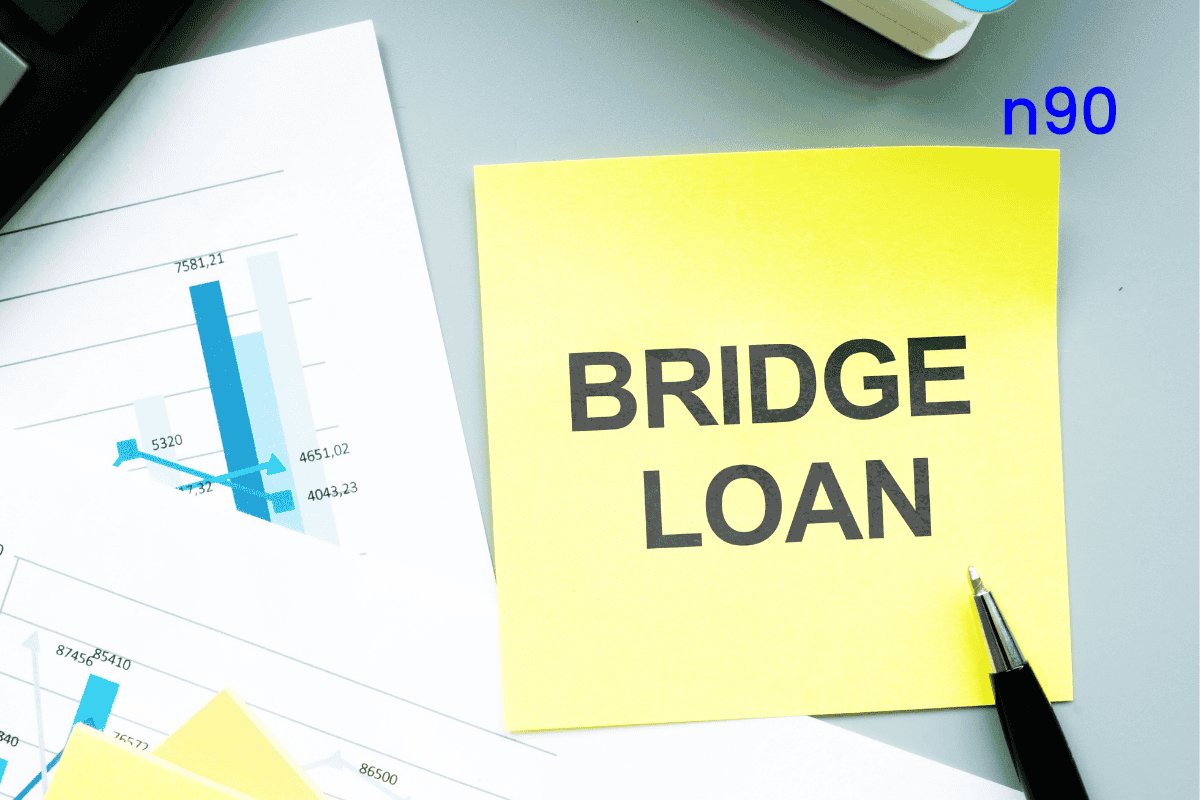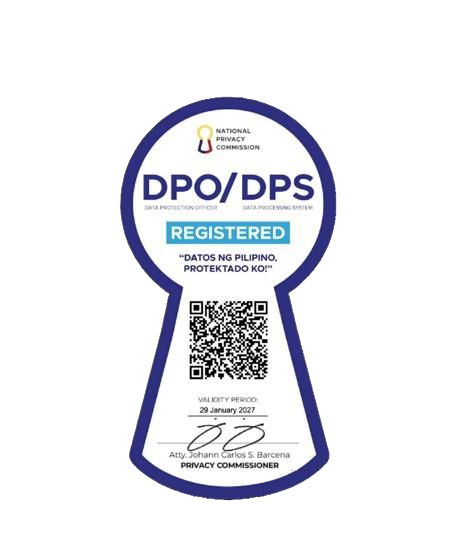If you’re urgently looking for funding to purchase a property, cover a short-term cash gap, or bridge financing until a sale goes through, one of your first questions is likely: how long will it actually take to get the loan approved? When time is tight, even a few days’ delay can make or break an opportunity.
In the Philippines, this concern is especially relevant. Small and Medium Enterprises (SMEs)—the backbone of the economy—face a huge funding shortfall, with an estimated ₱12.8 trillion in demand and only ₱870 billion in available financing. While lending programs exist, many businesses still struggle to access funds quickly.
If you’re facing this same issue, you're not alone—we understand how stressful and time-sensitive it can be. Whether you’re a growing business needing to act fast, a property investor racing the market, or a homebuyer caught in a sales chain, the ability to secure funds quickly can be the difference between success and setback.
In this article, we’ll walk you through how long a bridging loan typically takes to get approved, what factors can cause delays, and what steps you can take to speed things up.
TL;DR
- Bridging Loans = Speed + Flexibility: Designed for urgent funding needs, bridging loans give SMEs, property buyers, and investors access to short-term capital before long-term financing or asset sales are complete.
- Approval Can Be as Fast as 48 Hours—But Only If You're Prepared: Timelines vary from 5–21 days depending on your documents, property type, and lender. Being “application-ready” can speed things up significantly.
- Lender Type Matters More Than You Think: Traditional banks are slower (14–21 days), while alternative lenders and hard money lenders can approve within 5–10 days, sometimes even faster.
- Exit Strategy Is the Make-or-Break Factor: A clear, simple exit strategy (like selling a property or securing long-term financing) builds lender confidence and speeds up approval.
What Is A Bridging Loan?
A bridging loan is a short-term financing solution designed to "bridge" the gap between securing long-term funding or selling an existing property. It allows you to access immediate funds for a property purchase or investment, even before other funds or sales are finalized. Typically used in situations where a time-sensitive need for capital arises, a bridging loan is ideal for businesses or individuals who require quick financial relief to capitalize on an opportunity.
Who Can Take a Bridging Loan?
- Small and Medium Enterprises (SMEs): Businesses seeking to purchase property, finance short-term cash flow needs, or invest in real estate before selling existing assets can benefit from a bridging loan.
- Property Investors: Those involved in buying property quickly—whether for renovation, resale, or rental purposes—often rely on bridging loans to secure timely funding.
- Homebuyers in a Property Chain: If you're buying a new home but haven't yet sold your current one, a bridging loan can provide the immediate funds needed to complete the purchase.
Why Consider a Bridging Loan?
Bridging loans offer timely and adaptable funding options, usually requiring less paperwork and faster approval than traditional loans. They are ideal for addressing urgent financial needs and can serve as a strategic solution for businesses and individuals requiring immediate access to capital.
How Long Does It Take To Get A Bridge Loan?
The approval time for a bridging loan typically ranges from 5 to 21 days, depending on the lender and your circumstances. While many lenders can provide an initial decision in as little as 24 hours, actual funding may take longer. Generally, the process takes 7-14 days for most borrowers, but in urgent cases, some loans can be arranged within 24 to 48 hours.
Several factors can impact the approval of your bridge loan. Find that out in the next section.
Key Factors Influencing Timeframe
When funds are required quickly, it's essential to understand the factors that will influence the speed of the approval process. These can make the difference between securing a loan in days or weeks.
1. Lender Type
Traditional Lenders: Banks and other traditional lenders typically require more extensive documentation and a detailed approval process. Expect a timeframe of 14-21 days for approval, as they conduct thorough checks.
Alternative Lenders & Hard Money Lenders: These lenders are often much quicker, sometimes approving loans within 5-10 days. They focus more on the value of the property than the borrower's financial history.
2. Property Type
The type of property being used as collateral plays a significant role in the approval timeline.
Residential Properties: These tend to have a more straightforward process, often leading to faster approvals.
Commercial and Investment Properties: These may take longer, particularly if repairs or detailed property appraisals are necessary.
3. Borrower Readiness
Having all necessary documents prepared upfront is critical. Missing documents or delays in submitting paperwork can significantly delay the process.
Essential Documents: Proof of identity, proof of income, a property title, and a clear exit strategy are standard requirements for all transactions. Ensuring all documents are ready will avoid unnecessary delays.
However, there are a few common reasons that might delay the application process.
Common Delays in the Bridging Loan Application Process
Understanding these common issues can help you prevent the delay:
1. Incomplete or Inaccurate Application Information
Providing inaccurate or incomplete information will delay the approval process as lenders will need to request clarification or additional documents. It's essential to ensure all details are accurate and complete when submitting your application to avoid time-consuming back-and-forth.
2. Property Valuation
Lenders usually require a property valuation to assess its worth. A delay in scheduling the survey or waiting for the results can slow down the process.
Some lenders may offer desktop valuations (valuations completed remotely) to expedite the process, but this method may not be suitable for all property types.
3. Legal Issues
Legal complexities, such as title disputes or bankruptcy proceedings, can significantly delay the loan approval process. If either the property or the borrower has unresolved legal matters, these must be cleared up before the loan can proceed.
How to Speed Up Your Bridging Loan Application
While there are many factors influencing the time it takes to secure a bridging loan, there are also steps you can take to help speed up the process.
1. Be Proactive with Documentation
Make sure all the necessary documents are ready to submit. Prepare documents such as:
- Proof of identity
- Proof of income and financial statements
- Property title and legal documentation
- Clear exit strategy plan
The quicker you submit everything, the faster the approval process will move forward.
2. Choose an Experienced Solicitor
Bridging loans require legal handling, and choosing the right solicitor can speed up the process. Look for a solicitor with experience in bridging loans and ensure they understand the urgency of your application. Ensure that you discuss timelines clearly and confirm that your solicitor can handle the workload promptly.
3. Avoid Overcomplicating the Exit Strategy
The exit strategy is how you plan to repay the loan. Having a clear, simple exit strategy will reduce delays. Complex exit strategies can raise concerns for lenders and slow down the process. If you're not sure about the best approach, consider discussing it with your lender or broker.
Sometimes, the type of loan can also be a reason why your loan gets delayed. Read on to learn more about it.
Are Some Types of Bridging Loans Quicker Than Others?
Yes, certain types of bridging loans can be approved and funded more quickly than others. The key factors here include the type of property, the lender's process, and the urgency of your needs.
- Unregulated Bridging Loans are typically quicker to process than regulated bridging loans (which are secured against residential properties), as they involve fewer checks.
- Commercial Bridging Loans may take longer due to the need for more detailed appraisals and valuation reports.
- Auction Finance and Property Refurbishment Finance can often be processed more quickly, depending on the property type and the complexity of the loan.
Besides the loan type, choosing the right lender can also influence how fast you get the loan amount.
Also Read: Bridge Financing in The Philippines: How It Works and Notable Examples
Are Some Lenders Quicker Than Others?
Absolutely. Some lenders specialize in fast approvals and funding, while others focus on providing the best interest rates, which may require more checks and take longer. It's crucial to find a lender who matches your urgency:
- Some lenders prioritize fast approvals, but this can mean paying higher interest rates or accepting stricter loan conditions.
- Traditional lenders or those offering lower interest rates may require a more thorough approval process, which can extend the time it takes to receive your funds.
There are also organizations like n90 that offer a balance of quick approvals and competitive interest rates, focusing on providing tailored financial solutions.
Also Read: How Do Interest Rates Work in The Philippines, And What Are Their Types
How N90 Can Help You with the Bridging Loan Process?
When you need quick access to funds, getting a bridging loan can feel overwhelming. Whether you're an SME looking for emergency funds, buying property, or making an investment, waiting for approval can mean missing out on important opportunities.
Traditional lenders require a lot of paperwork and checks that can leave you waiting for days or even weeks. Finding a lender who can provide fast, straightforward solutions is key to ensuring that you don’t lose out.
But at n90, we simplify this process by offering a fast and straightforward way to secure bridging loans. With us, you can expect quicker approvals and loan terms that match your needs, without the lengthy delays common with traditional lenders.
Our Key Features:
- Quick Approvals: Fast approval process to help you get the funds you need when you need them.
- Flexible Terms: We have customized loan options that work with your financial situation, whether for property purchases or business expenses.
- Transparent Fees: Clear costs with no hidden fees, so you know exactly what you're paying.
- Tailored Financial Solutions: We provide loans designed specifically for SMEs and businesses in the Philippines.
With us, you can quickly access the funds you need to move forward with your goals.
Conclusion
Getting a bridging loan can take time, with several factors affecting how quickly you can secure the funds. From choosing the right lender to provide the necessary documents, there are steps you can take to speed up the process. Understanding these factors can help you make the right choice and expedite the loan approval process.
n90 makes the process easier, offering fast and flexible loans with clear terms and competitive rates. Whether you’re buying property or funding your business, n90 is here to provide the support you need without the long wait.
Looking for a lender with quick bridge loan approval? Apply now with n90.
FAQs
1. Can I repay a bridging loan early without penalties?
Many bridging loans allow early repayment without penalties, but this depends on the lender and loan terms. It’s important to review your loan agreement carefully or ask your lender about early repayment fees before signing.
2. Are bridging loans suitable for first-time property buyers?
Bridging loans can be suitable for first-time buyers in specific situations, such as when buying a new home before selling an existing one. However, they are usually more suitable for buyers who have a clear exit strategy and financial stability to handle potentially higher costs.
3. What happens if my bridging loan application is rejected? What are my options?
If your application is rejected, consider reviewing the reasons with your lender. You may improve your application by addressing issues like credit history, documentation, or exit strategy. Alternatively, explore other financing options such as traditional loans, personal loans, or seeking help from a mortgage broker.














